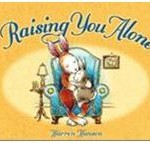Parenting | 10 Ways to Support an Angry Child
 Children who are feeling very angry on a regular basis usually have some underlying problem that they need help in expressing. Having to punish a child for the same repeated behaviour is telling you that there is something else going on, and it is time now to make a new plan to deal with it. Part of this new plan involves reflecting on what the actual issue is and asking why your child is feeling this anger. Ask yourself, how do they act around others? Does this behaviour only come out to you?
Children who are feeling very angry on a regular basis usually have some underlying problem that they need help in expressing. Having to punish a child for the same repeated behaviour is telling you that there is something else going on, and it is time now to make a new plan to deal with it. Part of this new plan involves reflecting on what the actual issue is and asking why your child is feeling this anger. Ask yourself, how do they act around others? Does this behaviour only come out to you?
Here are some key steps to help you to understand why your child is so angry:
- Get a large page and map out your child’s feelings. Name the emotions that you see – note the day and time, what happened before hand? Ask yourself, are they hungry or tired? Did they have a certain activity in school or with their minders this day? What about siblings, what are they doing at this time? Was there contact (if sharing parenting with their other parent)? Try to create a very clear picture of what is going on at that exact time when the anger outbursts occur.
- You will need to keep an anger diary for at least a week if the behaviour happens on numerous occasions. Try to see what is similar in each event. What may be prompting the anger outburst? Is there something you can see that is a challenge for your child? If not, don’t give up. Keep the diary, keep questioning, and keep looking. Perhaps ask a close friend to look at it for you, maybe a fresh pair of eyes will help.
- The next step is to look at you. Look at all the same questions and more. What is happening for you at this time? Are you just home from work? Are you hungry or tired? Do you have company over? Is there another child over? Are you feeling stressed? Basically, you are trying to see if there is something happening for you which may be causing you to respond to your child in a way that triggers an outburst. Often we can hold on to some anger and let go of it as things improve; however one thing can be enough for you to erupt. Are you erupting?
- Hopefully you will have discovered something through this exercise. When you can identify the possible triggers for the anger, then you can set to work. Firstly, if your child is over 2.5 years it should be possible for you to sit with them and explain to them in simple words what you see happening for them. Name the behaviour; try to stay away from blame. You need to be a bit like a commentator of a football match. You are naming only what you see. Then ask your child how they are feeling now.
- Tell your child clearly what you need from them, e.g. “I can see you are really angry with me when you are not allowed to stay up late. I feel you kicking me and hitting out. I need you to have good sleep and be able for the next day. I need you not to kick me, because it hurts.”
- Encourage a little empathy around the feelings. What they are feeling, e.g. “I know it can be hard to go to bed, especially when it is bright and you can hear me in the kitchen. I know you have lots of stories to tell me.” Also what you are feeling: “I am tired at this time. I really love to hear your stories, but sometimes I have to get jobs done and get organised.”
- Make a plan to make a change. If your child is clearly telling you they want more of your time, then plan how you can make this happen. Can you add in quality one-to-one time together each day for 20 minutes? Can you have quality time at the weekends? Talk with your child, e.g. “I hear you saying you would like more time with Daddy. How about we make a calendar and put in pictures of things we can do each day and at the weekend?’”Assure your child that you will stick to that calendar, and do it.
- Talk with your child about how they can express anger in healthy ways. Reflect on how you deal with anger. Remember, you are their role model. Help them explore things they can do, depending on their age: jump up and down 10 times, take deep breaths, use words, have a signal, have a special place to sit. You will decide best what works in your home.
- When the plan is agreed, thank your child for the chat. Tell them it is good when you share and try to explore what is happening for everyone. Tell them you will talk again in a few days to see how they are feeling.
- Help your child to succeed in this new plan. Do not vary the plan when other things go wrong. The plan is for this behaviour only, so use it that way. If there are other issues, deal with them in similar ways but separately.
Let us know how you get on at implementing this plan. Share your stories with other parents in our new One Family Parenting Group on Facebook.
This ’10 Ways to’ article is by One Family’s Director of Children & Parenting Services, Geraldine Kelly, as part of our weekly ’10 Ways to’ series of parenting tips. You can read the full series here.
Next you might like to read: 10 Ways to Improve Listening In The Home
Find out more about our parenting skills programmes and parent supports. For support and information on these or any related topics, call askonefamily on lo-call 1890 66 22 12 or email support@onefamily.ie.






